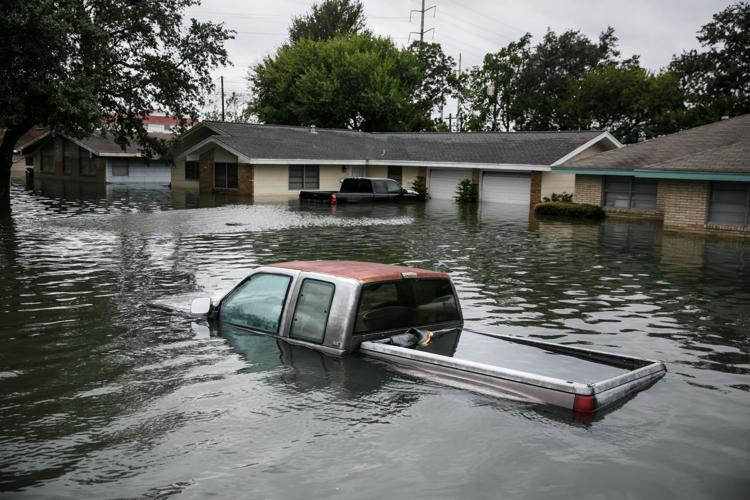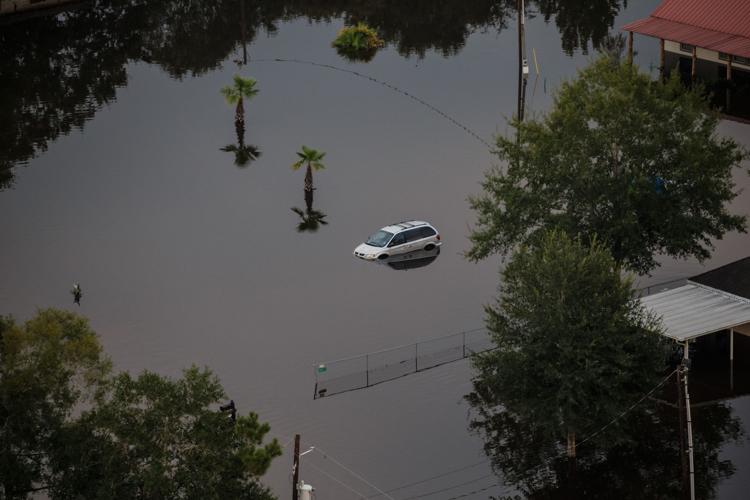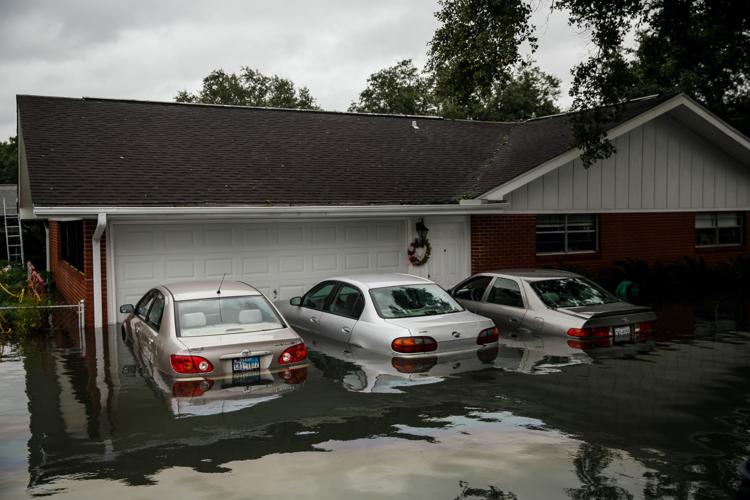Up to a million vehicles submerged by the recent hurricane in Houston are expected to be totaled by insurers and Tom Epperson is determined to keep them off his used-car lot in Tucson.
Similar write-offs happen after nearly every major storm, but this time the volume is “staggering,” said Epperson, owner of Clyde Wanslee Auto Sales on South Sixth Avenue, the dealership that’s been in his family since the 1930s.
“Those flood cars are going to end up everywhere, in every state,” so local dealers and car buyers need to take extra care to avoid getting stuck with them, he said.
Vehicles aren’t safe to drive once their electrical and computer systems are soaked by saltwater, experts say. Even if they look fine and seem to run well, corrosion makes them prone to fail without warning and airbags may not deploy in a crash.
Such vehicles often re-enter the market when insurers sell them as salvage to buyers who clean them up for resale. Some are transferred from state to state first, a practice known as “title-washing” that can mask their history and origins.
After Hurricane Katrina in 2005, “authorities reported truckloads of flooded vehicles being taken out of Louisiana to other states … where they were dried out, cleaned, and readied for sale to unsuspecting consumers,” according to the website of the National Motor Vehicle Title Information System.
Epperson said most dealerships take pains to ensure flood vehicles don’t end up on their lots, but less-than-reputable operators may not be as diligent about quality checks.
A salvaged or flood-damaged vehicle is supposed to be identified as such on title, but “many times it is not,” said Ryan Harding, a spokesman for the Arizona Department of Transportation.
“So it’s important for consumers in the used vehicle market to do their due diligence,” Harding said.
ADOT recommends checking floorboards, under dashboards, under carpets and in trunks for sand, silt, mold or corrosion and under the hood for random new parts. Rusted door hinges, musty smells, brittle wiring and broken gauges can also be telltale signs.
Houston’s flood vehicles could hit the market here soon.
“We expect to see flood-damaged vehicles put up for sale in the next few months,” said Arizona attorney general spokeswoman Mia Garcia, who also stressed the need for consumer vigilance.
Garcia said vehicles should be inspected by a reputable mechanic before purchase. She also recommends using the National Insurance Crime Bureau’s free VIN-checking service at nicb.org.
Even that isn’t foolproof though, since it only captures the status of vehicles with comprehensive insurance coverage.
Flood-damaged vehicles have ended up in Tucson before, said Frank “Buck” Buckner, owner of Buck’s Automotive Service Center on North First Avenue.
He recalled a local who, not long after Hurricane Katrina, brought in a low-mileage Lexus to have it inspected before buying.
“The car looked gorgeous. But there was sand in the battery box, sand in the floorboards, and the whole underside was covered in surface rust.”
Sellers of suspect vehicles may be evasive if questioned, so consider that a danger sign too, said Harding of ADOT.
“If the seller is acting suspiciously, being evasive or uncooperative, walk away,” he said.






